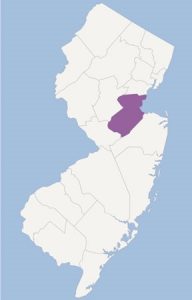Change Seeker: Making Institutions Work for People
E-Newsletter for Analyzing Institutional Responses to Violence Against Women

Issue 5
Praxis training and technical assistance on institutional analysis provides tools for advocates and communities to reform the social institutions that respond to victims of violence against women. Change Seeker: Making Institutions Work for People is a bi-annual e-newsletter that features foundations of Institutional Analysis, recent projects, new tools, answers to TA questions, upcoming training events, and interesting applications of Institutional Analysis. We hope it helps you to succeed in your system reform efforts!
Quick links:
Office on Violence Against Women Funding Opportunities
Project Spotlight: New Jersey
Dear Praxis: Presenting Safety Audit Results to our Committee
Featured Tools: Child Protection Practice Assessment Tool
Interesting Applications
Upcoming Training and Available Support: Registration now open for 2019 Community Assessment Institute!
 Office on Violence Against Women Funding Opportunities
Office on Violence Against Women Funding Opportunities
Reminder: Office on Violence Against Women grant solicitations are open to support your system’s change work
Many of the Office on Violence Against Women’s grant programs support communities to conduct evaluation and analysis of their responses to violence against women and to strengthen system’s change advocacy (eg., Rural due on Feb 14, 2019 and Improving Criminal Justice Responses due on Feb 26, 2019 ). The Praxis Institutional Analysis offers tools to do system reform on behalf of survivors of violence against women. By focusing on how workers are organized to act on cases, these tools help communities to uncover how complex institutions either meet the needs of, or produce negative outcomes, in the lives of everyday people.
Teams of advocates, community members, and agency representatives talk with survivors about their experiences with a system, talk with and observe people at work, map out the steps involved in processing cases, and review policies, forms, and case records. The process produces a road map for changes to enhance safety and well-being for survivors and accountability of offenders. The tools help teams to…
- Avoid pointing fingers of blame at individuals for failing to protect victims/survivors
- Proactively work side by side
- Analyze and change how the day-to-day work practices of practitioners are organized to centralize attention to victim/survivor safety and well-being
Email us to learn more info@praxisinternational.org. For supportive materials to write a grant application that includes these tools, visit our Logistics Guide, Section 1: Getting Started.
 Project Spotlight: New Jersey Safety and Accountability Assessment Pilot Project
Project Spotlight: New Jersey Safety and Accountability Assessment Pilot Project
 Many states, counties, and communities across the nation have used Praxis Institutional Analysis to improve systems’ responses to violence against women and increase safety for victims and survivors. New Jersey, however, is the first state in the country to advocate for and pass a law that mandates cross-system safety assessment throughout the state.
Many states, counties, and communities across the nation have used Praxis Institutional Analysis to improve systems’ responses to violence against women and increase safety for victims and survivors. New Jersey, however, is the first state in the country to advocate for and pass a law that mandates cross-system safety assessment throughout the state.
“In January 2014 legislation was passed that directed the Division on Women to conduct an Institutional Analysis on the systematic response to domestic violence on a state, county and local level—specifically to focus on how institutions investigate, prosecute, and provides services to keep [domestic violence] victims safe and offenders accountable.” – Ulana Tatunchak, Division on Women, November 2018 webinar presentation
The Division on Women (DOW) in the New Jersey Department of Health is mandated to carry out this law and has developed and engaged in a Safety and Accountability Pilot Program focused on Assessing Cultural Accessibility and Inclusivity in Institutional Responses to Domestic Violence. The pilot project has worked intensively with two communities selected in early 2016 to help uncover promising practices, areas for improvement, and foster vital cultural partnerships and resources.
- Asbury Park: This project has focused on assessing for inclusive and culturally relevant responses for underserved populations in Monmouth County, specifically Latinos in Asbury Park. The assessment revealed that there was a separate response to Spanish-speaking survivors compared to English-speaking survivors. Mainstream and government agencies that had resources to help survivors would refer Spanish-speaking survivors to community organizations that had the expertise to serve them, but lacked the resources. As a result, many solutions from this assessment will focus on bridging the gap between two responses to ensure one holistic coordinated response for the Latino population in Asbury Park.
- Middlesex: Manavi is a non-profit community-based advocacy program working with South Asian women who often need an interpreter, especially when they go to court. In its early stages, this project will focus on assessing Gujarati-speaking survivors’ experiences with language access in the courts.
Praxis has provided intensive support to this project through numerous visits to the communities to train their local teams and support their pilot project design. We conducted a webinar in November 2018 featuring the unique design of their statewide pilot project and some early results from the two pilot communities. Listen to the webinar here to learn more about their project and data collection activities to uncover institutional practices that lead to inequities.
Related Resources
- Disparity-Focused Institutional Analysis Highlights: Key Tailoring Approaches
- Reports from Equity/Disparity-Focused Institutional Analysis Projects
- Safety and Accountability Audit of the response to Native women who report sexual assault in Duluth, MN
- A Discussion of Accounting for Culture in Supervised Visitation Practices: The City of Chicago, Illinois Demonstration Site Experience
- Race Equity Review: Findings from a Qualitative Analysis of Racial Disproportionality and Disparity for African American Children and Families in Michigan’s Child Welfare System
- Community-Based Analysis of the U.S. Legal System’s Intervention in Domestic Abuse Cases Involving Indigenous Women
- State Coalitions and Agencies that have promoted and supported Safety & Accountability Audits across their state (view map with links to project descriptions)
- Colorado Coalition Against Domestic Violence
- New York State Office for the Prevention of Domestic Violence
- Michigan Domestic Violence Prevention & Treatment Board
- Florida Coalition Against Domestic Violence
- State of Iowa Judicial Branch
- Minnesota Coalition for Battered Women
- Nevada Attorney General’s Office
- Muskie School of Public Service
- Minnesota Coalition Against Sexual Assault
- New Jersey Division on Women
 Dear Praxis: What information about Safety Audit results can we present to our committee?
Dear Praxis: What information about Safety Audit results can we present to our committee?
Dear Praxis, 
We just had our initial planning committee meeting on implementing the Praxis Safety and Accountability Audit and a question was raised about results and successes of the process. What information about post-assessment results can we present to our committee? I think we’re sold on it already as a community, but the data would offer more reason to implement our local assessment.
Dear Change Seeker, 
This is a great question and so important for enlisting support and buy in at the beginning stage of your institutional reform work! Here is a report that summarizes key strategies (and pitfalls) for implementing changes that were recommended as a result of engaging in a Safety and Accountability Audit. This report will give you food for thought for building attention to implementation throughout your audit. Also review this chart that summarizes the Outcomes & Impact of Safety & Accountability Audits Conducted Across the United States.
One of the benefits of using the 8 Audit Trails as an anchor for the process is that it, in the end, provides you with a “to do” list of concrete changes that you can make to improve outcomes. Audits, therefore, generally produce concrete results that relate to the audit trails:
- Mission, Purpose, & Function: Adopting a new specialization in responding to violence against women
- Concepts & Theories: Belief-based versus credibility-based approaches to investigation
- Accountability: New supervisory tools for frontline practitioners to adhere to new policies
- Rules & Regulations: New/revised policies and procedures
- Administrative practices: New/revised forms, checklists, guidelines
- Linkages: Resources to build partnerships, inter-agency coordination, and standardized protocols
- Education & Training: Training of agency staff with new materials, format, and content
- Resources: New personnel and partnerships in hiring new personnel
Examples of more comprehensive outcomes have included the following:
- St. Louis County Sheriff’s Office Domestic Violence Handbook and Training Guide for Patrol Deputies
- The Blueprint for Safety was developed as a result of an audit that was conducted in Saint Paul, Minnesota (listen to January 2019 webinar about this project or read transcript)
Qualitative outcomes are consistently reported, as well. Particularly those related to learning a new way for interagency teams to work together:
- Clear improvements in personal and professional relationships, inter-agency collaboration, and ways to identify and resolve problems
- Agencies and practitioners recognize the role they play and how important that is to others
- Agencies and practitioners approach system reform less defensively
- Community-based advocates are better positioned as leaders in institutional reform efforts
- Interagency work continues to informally utilize the audit process to monitor and evaluate their community responses to violence against women.
At the conclusion of their Audit, communities shift their “Audit Team” to an “Implementation Team” and prioritize their “to do” list. Teams typically pick the low hanging fruit first to demonstrate success. They then use that success as a way to build support for tackling the recommendations that might not come so easily.
Sincerely,
The Praxis Institutional Analysis Team
 Featured Tools: Child Protection Practice Assessment Tool
Featured Tools: Child Protection Practice Assessment Tool
 In 2010 Praxis, in partnership with the National Council of Juvenile and Family Court Judges and The Center for the Study of Social Policy, received funding from the Office on Violence Against Women to create a tool, Supporting the Safety of Battered Mothers and Their Domestic Violence-Related Cases: A Guide to Assessing Child Protection Practice in Domestic Violence-Related Cases, for communities to assess their child protective services practices and linkages with community-based advocacy. The process helps communities answer important questions:
In 2010 Praxis, in partnership with the National Council of Juvenile and Family Court Judges and The Center for the Study of Social Policy, received funding from the Office on Violence Against Women to create a tool, Supporting the Safety of Battered Mothers and Their Domestic Violence-Related Cases: A Guide to Assessing Child Protection Practice in Domestic Violence-Related Cases, for communities to assess their child protective services practices and linkages with community-based advocacy. The process helps communities answer important questions:
- Do we know when battering is a factor in child maltreatment cases and the impact on the child and mother?
- What do we know about her strategies to protect her children? Does our intervention enhance or diminish her capacity to protect her children?
- Does our intervention contribute to harmful, disparate outcomes for specific groups of people?
- Does our intervention increase or decrease risk of harm from the batterer?
- Is there more we can do to stop the batterer?
Using the Praxis Institutional Analysis process, the guide includes tools for community teams of advocates, child protection representatives, and others to engage in an assessment of the child protective services response to domestic violence, and to incorporate new policies and practices for responding to cases with an overlap of child maltreatment and battering.
Listen to the following webinars presented by the creators and testers of the guides:
- Supporting Safety Together: Reviewing Child Protective Services Policies, Forms, and Case Records, December 2018
- Supporting Safety Together: Assessing Child Protective Services Response to Battering, February 2017
- Collaborating to Improve Outcomes for Battered Women and their Children: Announcing a New Toolkit for Assessing Child Protective Services Responses to the Co-Occurrence of Child Maltreatment and Battering, August 2016
Access the following materials related to the guide:
To learn more, email info@praxisinternational.org.
 Interesting Applications
Interesting Applications
- Dorothy E. Smith, Feminist Sociology & Institutional Ethnography: A Short Introduction, by Liz Stanley
- Institutional Ethnography: How Tenured Academic Women Talk About Success, by Martina H. Myers
- Institutional Ethnography: A Sociology for Librarianship, by Nicole K Dalmer, Roz Stooke, Pam McKenzie
[January 2019]

